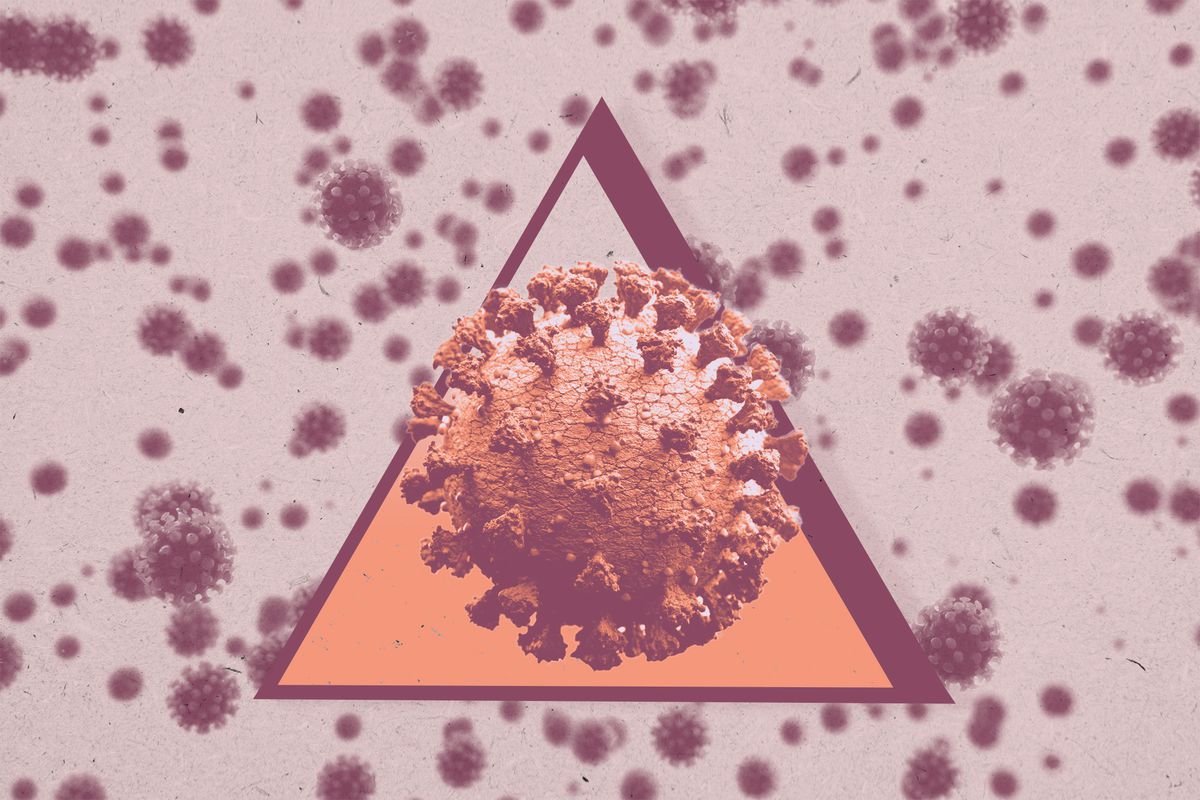
This potentially more severe variant is in the US, and experts have serious concerns.
You’re probably hearing and thinking about COVID-19 less these days, and there’s a good reason for that: Cases of the virus continue to fall as more people in the US are vaccinated. But there’s been a lot of buzz about a COVID-19 variant called Delta that has plenty of people-including infectious disease experts-talking.
Earlier this week, Anthony Fauci, MD, director of the US National Institute of Allergy and Infectious Diseases, said during a briefing of the White House COVID-19 response team that, while Delta makes up about 6% of COVID-19 cases in the US, it has potential to spread more rapidly. “We cannot let that happen in the United States,” he said, pointing to the UK, where the variant has caused a resurgence in cases, as a “powerful argument” for more vaccination.
In the UK, Dr. Fauci said, the Delta variant has become the dominant strain, replacing B.1.1.7 (now called the Alpha strain). It’s also driving new cases in people ages 12 to 20.
Dr. Fauci said that the Delta variant may be “associated with increased disease severity” when compared to the original SARS-CoV-2, the virus that causes COVID-19.
Eric Topol, MD, founder of the Scripps Research Translational Institute, said on Twitter that the Delta variant is “the worst we’ve seen so far.”
British Health Secretary Matt Hancock also said in a press conference that Delta is around 40% more transmissible than SARS-CoV-2, meaning it can spread faster and easier than the original strain of COVID-19.
It’s a lot to take in, especially as you’re starting to get used to some sense of normalcy again. Here’s everything you need to know about Delta based on the data so far.
Where did the Delta variant originate?
The Delta variant, aka B.1.617.2, was originally detected in India in December 2020, according to the Centers for Disease Control and Prevention (CDC). It’s actually a mutation or sub-variant of B.1.617, the so-called “double mutant” strain that got plenty of attention in April.
“As these viruses mutate and develop, they look like your family tree,” John Sellick, DO, an infectious disease expert and professor of medicine at the University at Buffalo/SUNY, tells Health. “This particular sub-variant has wrecked havoc in India.” And now, it seems, it’s spreading across the globe.
Is the Delta variant in the US?
Yes. Currently, the Delta variant makes up about 6% of all COVID-19 cases in the US, Dr. Fauci said. It’s not entirely clear when it first arrived in America.
Why is the Delta variant so concerning?
The Delta variant has several mutations on the spike protein of SARS-CoV-2, which can help it spread more easily than other forms of the virus. The CDC specifically says that this variant has a “potential reduction” in the effectiveness of the COVID-19 vaccine, and a “potential reduction” in the ability of some monoclonal antibody treatments to work against the virus.
“A variant like this can rapidly take over and become the primary strain circulating in that region,” Stanley Weiss, MD, professor of medicine at the Rutgers New Jersey Medical School and professor of biostatistics and epidemiology at the Rutgers School of Public Health, tells Health. “That indicates that a variant has survival advantages. In places such as India where we’ve seen so many people infected and so much disease, there’s evidence that this can spread quickly.”
Experts are also concerned because “the variant has the potential to at least partially evade the protection of the vaccine,” William Schaffner, MD, an infectious disease specialist and professor at the Vanderbilt University School of Medicine, tells Health. He compares Delta to B.1.351 (now called Beta), which was originally detected in South Africa. “There is a chance that this can make you sick, even if you’re been vaccinated,” Dr. Schaffner says.
Delta is also potentially problematic because “it’s clear that young people are at risk,” including those who aren’t yet eligible for the COVID-19 vaccine, Dr. Weiss says.
What are the symptoms of the Delta variant?
The Times of India says that Delta has been linked with more GI issues, including diarrhea, stomach pain, loss of appetite, and nausea, but that’s mostly anecdotal at this point.
There’s not a lot of data on this just yet, Dr. Sellick says. He recommends keeping an eye out for the usual COVID-19 symptoms, including:
- Fever or chills
- Cough
- Shortness of breath or difficulty breathing
- Fatigue
- Muscle or body aches
- Headache
- New loss of taste or smell
- Sore throat
- Congestion or runny nose
- Nausea or vomiting
- Diarrhea
Are vaccines effective against the Delta variant?
Yes-ish. The CDC cites data from a study of COVID-19 cases in 44 counties in California, which found that COVID-19 variants with an L452R mutation, which Delta has, can cause a two-fold reduction in neutralizing titers in people who have been fully vaccinated against COVID-19. (Neutralizing titers help target and take out a virus, and they tend to correlate with the level of protection offered by a vaccine.)
How much less protective the COVID-19 vaccines are against Delta in the real world isn’t clear at this point, Dr. Schaffner says. “Even if this variant can partially evade protection of the vaccine, the more people who are vaccinated, the less apt this is to spread,” he says.
Source: https://www.health.com/condition/infectious-diseases/coronavirus/delta-variant-covid-19

Leave a Reply